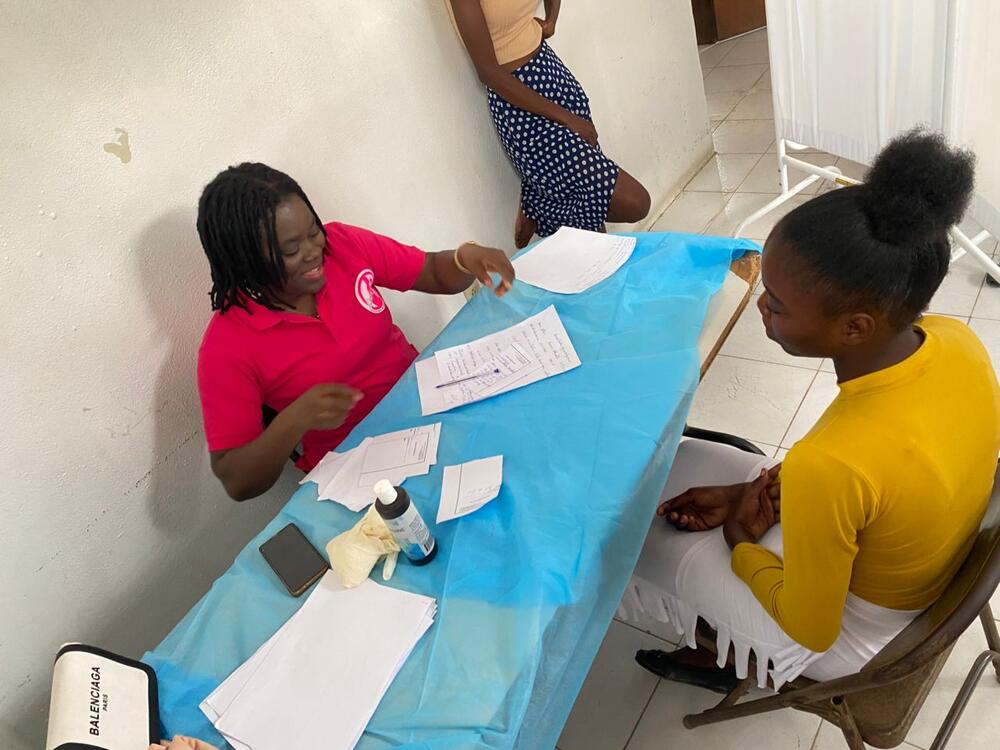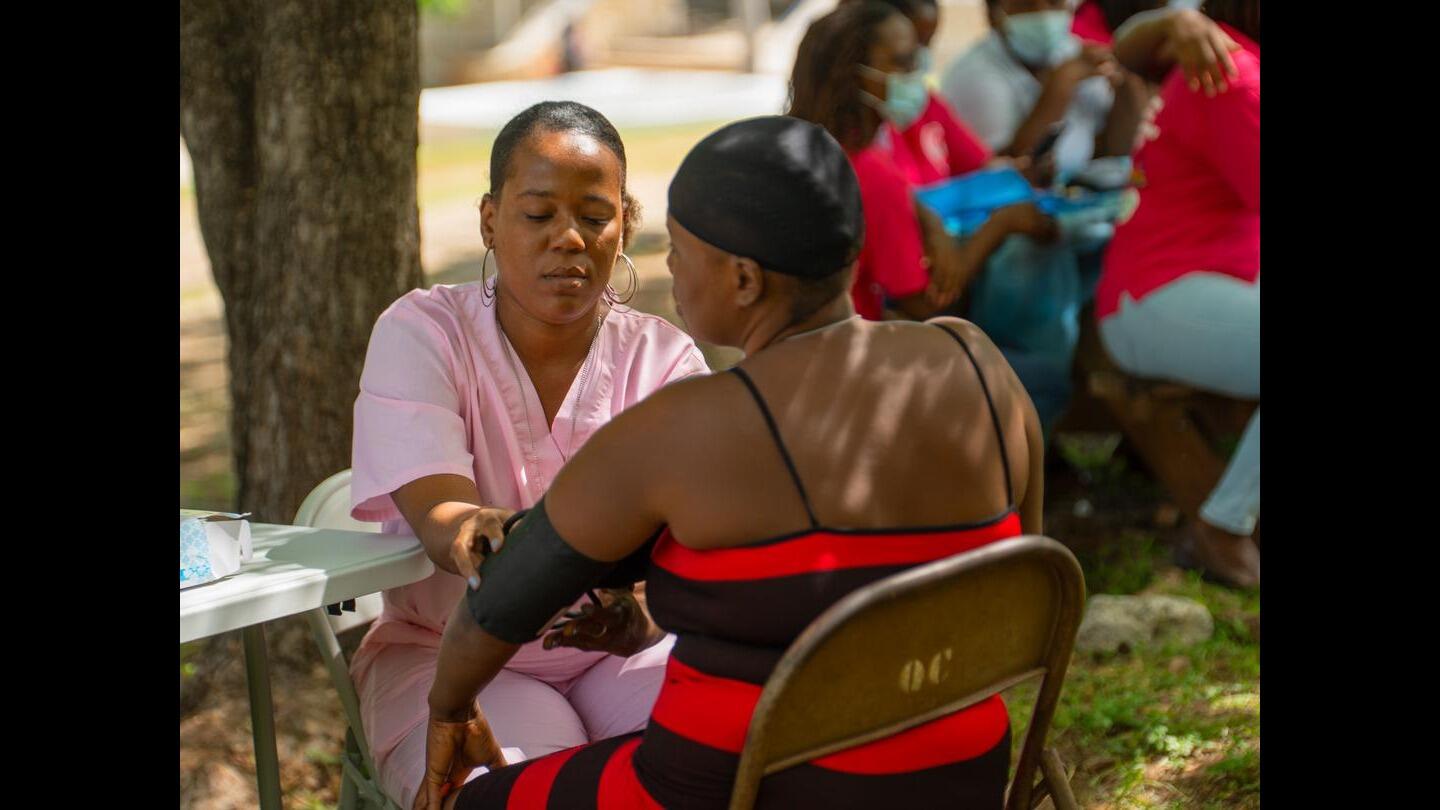Port-au-Prince, May 5, 2025 --- The Association of Midwives of Haiti (ASFH) organized a mobile clinic for displaced women in eastern Port-au-Prince on May 3, 2025.
This activity took place around the theme of International Midwives Day: “Midwives: essential in every crisis”.
The day was marked by simultaneous information, education and communication (IEC) sessions on danger signs during pregnancy, gender-based violence, cervical cancer and family planning.
Several sexual and reproductive health services were offered. These included prenatal care, family planning (including long-acting contraceptive methods), cervical cancer screening (VIA), and gynecological consultations.

VIA is a highly effective screening method for precancerous cervical lesions. Uterine cancer is one of the most common cancers among women in low-income countries like Haiti.
According to the president of the Haitian Midwives Association, Yves Carmelle Fanfan, the work of midwives during this crisis must be recognized and women supported.
The women present were able to benefit from available care, the President emphasized.
This clinic was intended for women seeking contraception and family planning consultations to monitor their reproductive capacity and avoid unwanted pregnancies and their many consequences.
The ASFH president thanked the Minister of Public Health and Population, Dr. Sinal Bertrand, who has made the health of pregnant women a priority. "The minister understands the importance of the work of midwives in the fight to reduce the number of deaths during childbirth," she said.
She thanked the main technical and/or financial partners of the ASFH such as the IPPF, the FHAM, the 4C, the Ministry of Public Health and Population, the PASSREL and the UNFPA.
Other activities were organized in Haiti to mark International Midwifery Day, including radio broadcasts in various media, as well as awareness and information sessions on the midwifery profession in secondary schools and other educational institutions.
These activities were carried out in collaboration with the departmental committees of the ASFH and the three training centers of the National Higher Institute for Midwifery Training (INSFSF). These three centers are in the departments of North (Limonade), South (Cayes) and West (Port-au-Prince).
Healthcare needs, particularly in the areas of sexual and reproductive health, are constant. And with population growth, the deficit in essential resources, such as healthcare professionals and infrastructure, is also widening. A midwife's scope of practice is not limited to the hospital setting. It also extends to the community. Midwifery practice encompasses a wide variety of care.
The work of midwives contributes greatly to reducing maternal and newborn mortality rates and helps improve women's health throughout their lives.
Midwives are frontline health professionals in basic obstetric and neonatal care centers (SONUB) to ensure prenatal monitoring and uncomplicated deliveries.
Text: Vario Sérant


